ultra-processed food
description: food products that have undergone extensive processing and contain artificial ingredients
10 results
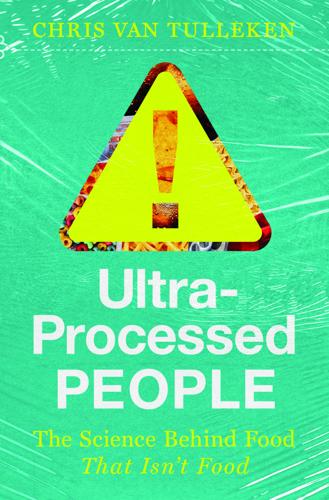
Ultra-Processed People: The Science Behind Food That Isn't Food
by
Chris van Tulleken
Published 26 Jun 2023
I’d rather have five bowls of Coco Pops: the discovery of UPF 1 Monteiro CA, Cannon G, Lawrence M, et al. Ultra-processed foods, diet quality, and health using the NOVA classification system. Rome: Food and Agriculture Organization of the United Nations, 2019. 2 Ioannidis JPA. Why most published research findings are false. pLoS Medicine 2005; 2: e124. 3 Rauber F, da Costa Louzada ML, Steele EM, et al. Ultra-processed food consumption and chronic non-communicable diseases-related dietary nutrient profile in the UK (2008–2014). Nutrients 2018; 10: 587. 4 Rauber et al, 2020. 5 Chang et al, 2021. 6 Rauber F, Steele EM, da Costa Louzada ML, et al. Ultra-processed food consumption and indicators of obesity in the United Kingdom population (2008–2016). pLoS One 2020; 15: e0232676. 7 Martínez Steele E, Juul F, Neri D, Rauber F, Monteiro CA.
…
Antioxidant supplements for prevention of mortality in healthy participants and patients with various diseases. Cochrane Database of Systematic Reviews 2012; 3: CD007176. 14 Snowdon C. What is “ultra-processed food”? 2022. Available from: https://velvetgloveironfist.blogspot.com/2022/01/what-is-ultra-processed-food.html. 15 Your Fat Friend. The bizarre and racist history of the BMI. 2019. Available from: https://elemental.medium.com/the-bizarre-and-racist-history-of-the-bmi-7d8dc2aa33bb. 3. Sure, ‘ultra-processed food’ sounds bad, but is it really a problem? 1 Hall KD, Sacks G, Chandramohan D, et al. Quantification of the effect of energy imbalance on bodyweight.
…
Cellular Metabolism 2019; 30: 67–77. 4 Martini D, Godos J, Bonaccio M, et al. Ultra-processed foods and nutritional dietary profile: a meta-analysis of nationally representative samples. Nutrients 2021; 13: 3390. 5 October 28. Health inequalities and obesity. 2020. Available from: https://www.rcplondon.ac.uk/news/health-inequalities-and-obesity. 6 Fiolet T, Srour B, Sellem L, et al. Consumption of ultra-processed foods and cancer risk: results from NutriNet-Santé prospective cohort. British Medical Journal 2018; 360: k322. 7 Zhong G-C, Gu H-T, Peng Y, et al. Association of ultra-processed food consumption with cardiovascular mortality in the US population: long-term results from a large prospective multicenter study.
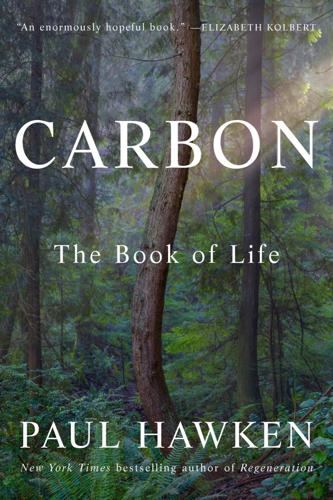
Carbon: The Book of Life
by
Paul Hawken
Published 17 Mar 2025
Eons of scarcity from the distant past hardwire these desires. Big Food knows this and depends upon it. Ultra-processed foods are designed to lure, attract, and addict to make a profit. Their chemists make food ever more desirable: Doritos, Big Macs, and Oreos (there is now an Oreo breakfast cereal for children). Over 70 percent of the American diet is ultra-processed food. These include so-called natural foods such as vegan burgers, protein bars, and oat milk. Consumption of ultra-processed food is directly linked to depression, dementia, diabetes, high blood pressure, stroke, obesity, and cancer.
…
GO TO NOTE REFERENCE IN TEXT “sensory” chemists know what happens: Nell Boeschenstein, “How the Food Industry Manipulates Taste Buds with ‘Salt Sugar Fat,’ ” NPR, February 26, 2103, npr.org/sections/thesalt/2013/02/26/172969363/how-the-food-industry-manipulates-taste-buds-with-salt-sugar-fat. GO TO NOTE REFERENCE IN TEXT Ultra-processed foods are designed: Lelia Green, “No Taste for Health: How Tastes Are Being Manipulated to Favour Foods That Are Not Conducive to Health and Wellbeing,” M/C Journal 17, no. 1 (2014), doi.org/10.5204/mcj.785. GO TO NOTE REFERENCE IN TEXT ultra-processed food is directly linked: Huiping Li et al., “Association of Ultraprocessed Food Consumption with Risk of Dementia: A Prospective Cohort Study,” Neurology 99, no. 10 (September 6, 2022): e1056–e1066, doi:10.1212/WNL.0000000000200871.
…
Identical species in a single herd forage differently on wildlands according to the innate nutritional wisdom needed for their well-being. Rats with laboratory-induced diabetes will switch to a high-protein diet, if available, and eliminate the symptoms of diabetes. Of course, none of the children in the nutrition study were offered candy, white bread, junk food, or soft drinks. Today, sugary, ultra-processed foods are freely available. And three fourths of the US population is overweight or obese, as are one billion people in the world. Food manufacturers and “sensory” chemists know what happens on our tongues and palate, the olfactory responses the mouth experiences, and how they affect the brain and our sense of well-being.
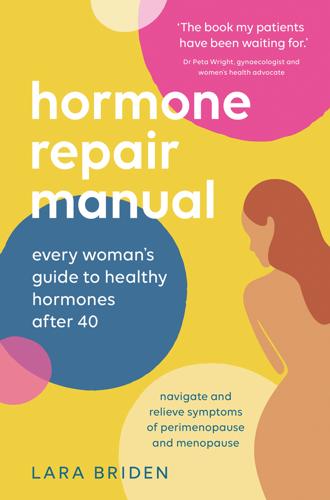
Hormone Repair Manual
by
Lara Briden
Published 14 Apr 2021
Fat provides valuable fat-soluble nutrients and essential fatty acids, while whole-food carbohydrates provide soluble fibre and resistant starch to help you to feel full, feed gut bacteria and promote healthy estrogen metabolism. Neither fat nor carbohydrate is inherently bad. The problem is ultra-processed food. Avoid ultra-processed food According to the British Medical Journal, ultra-processed foods are ‘formulations of food substances often modified by chemical processes and then assembled into ready-to-consume hyper-palatable food and drink products using flavours, colours, emulsifiers and . . . other cosmetic additives’. Ultra-processed foods include almost all types of junk food, such as chips, prepared desserts, fast food and soft drinks. As you can imagine, they are associated with very bad health outcomes, including insulin resistance, heart disease and fatty liver, which we’ll cover in Chapter 10.
…
There’s a bidirectional relationship between the microbiome and perimenopause, in that problems with the microbiome can worsen perimenopausal symptoms, and, at the same time, changing hormones can alter the composition of the gut microbiome. That’s why you may be experiencing changes with your digestion. Diet and lifestyle to support digestive health • Reduce alcohol because it can damage the microbiome. • Eat vegetables and healthy starches because they feed friendly bacteria. • Avoid ultra-processed food because it starves friendly bacteria. • Avoid concentrated sugar because it can feed unfriendly bacteria. • Identify food sensitivities such as to wheat and dairy and avoid these foods if they are creating inflammation. • Identify a possible sensitivity to high-amine or nickel-containing foods and reduce them if they are creating inflammation
…
As you can imagine, they are associated with very bad health outcomes, including insulin resistance, heart disease and fatty liver, which we’ll cover in Chapter 10. Ultra-processed foods are devoid of the nutrients needed by you and the fibre needed by your microbiome. They also commonly contain harmful food additives, high-dose fructose (Chapter 8) and processed vegetable oils. Processed vegetable oils include oils such as soy, corn, canola and cottonseed oil and can contain either or both 1) trans fat, and 2) a high dose of omega-6 fatty acids. Trans fat is an industrially produced oil that’s used by manufacturers to make food crispy and increase shelf-life.
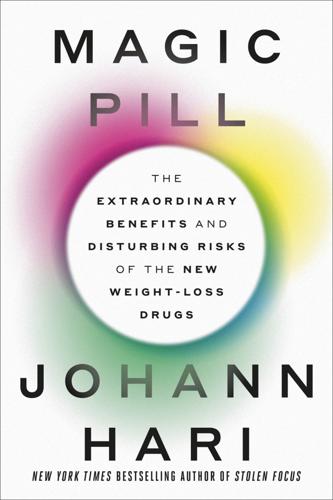
Magic Pill: The Extraordinary Benefits and Disturbing Risks of the New Weight-Loss Drugs
by
Johann Hari
Published 7 May 2024
He started to eat worse food, gained a lot of weight, and had to have heart surgery in his early seventies. I pictured him on his hospital bed, wired with tubes, and thought: It’s very hard to resist Cheesecake Park. CHAPTER 3 The Death and Rebirth of Satiety The strange connection between processed food and the new drugs It is clear that this new kind of factory-assembled, ultra-processed food is triggering a frenzy in many of us that is like the one those rats experienced. Dunkin’ Donuts now sells enough doughnuts every day to circle the earth twice, and Ronald McDonald is the second most recognized figure in the world, beaten only by Santa Claus. More people recognize the Golden M as the symbol for McDonald’s than the number of people who recognize the cross as a symbol of Christianity.
…
I interviewed him in his office, where dozens of photographs of identical twins stared down at me, smiling. The effect was slightly eerie. As I avoided their gaze, Tim helped me to see some of the reasons I have been so damn hungry all my life—far more than my father, or grandfather, or great-grandfather. The first way that ultra-processed food undermines our satiety is strangely simple. You chew it less. It is, Tim explained, “generally very soft…It is adult baby food.” When you eat, your body gradually registers that food is coming in and sends you the signal that you’ve had enough. If you have to chew your food and it takes longer to eat it, the signal to stop kicks in at the right time, when you are sated.
…
In other words—Big Agriculture does to animals precisely what the processed food industry is doing to us and our children every day. * * * As I walked out of Tim Spector’s office and saw all those twins staring down at me one last time, I thought about his warning that, as a result of so many of these factors, we are now living in a “perfect obesity storm.” If ultra-processed food were a drug, he said, it would be taken off the market, because it would be regarded as too dangerous for people to use. * * * In the first few months of my research for this book, I interviewed people about what I thought of as two quite different topics. I talked to scientists who investigate how our food affects us, and I spoke with scientists about how the new generation of weight-loss drugs affects us.
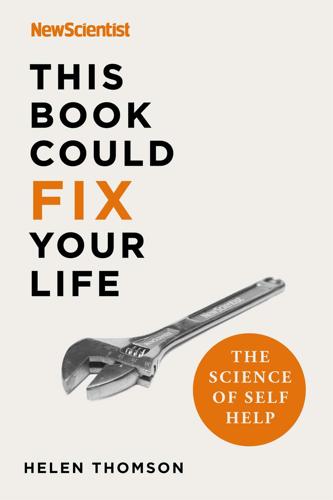
This Book Could Fix Your Life: The Science of Self Help
by
New Scientist
and
Helen Thomson
Published 7 Jan 2021
Intriguingly, the experiments above showed that the extra calories eaten by those on a low-protein diet came from savoury snacks, especially those that tasted like umami, the signature flavour of protein. The protein-deprived volunteers were craving things that tasted like protein, even though they were made of carbs. Our food environment is awash with these kinds of protein decoys – crisps, instant noodles, crackers and so on. They are also known as ultra-processed foods. It’s no surprise that ultra-processed foods, designed by industry to be irresistible, are bad for us. They include delicious common fare such as pizzas, sweets, bread, cakes, mayonnaise, ketchup and ice cream. But it might be that the problem of overconsumption has less to do with these foods being full of fat and carbs, as is often depicted, and more that they are depleted of protein.
…
But it might be that the problem of overconsumption has less to do with these foods being full of fat and carbs, as is often depicted, and more that they are depleted of protein. They tend to be low in protein because it’s an expensive addition. But when protein is diluted by fats and carbs our appetite for it overwhelms the mechanisms that normally tell us to stop eating fats and carbs. Ultra-processed foods also contain very little fibre, which is filling and so puts a brake on appetite. Their frequent flavouring with umami, which our protein appetite craves, only makes matters worse. As a result, we eat way more than we should. The good news is that you can use these insights to make your five appetites work for you, rather than against you.
…
In theory, you won’t need to keep track of your carbs and fats at all as your protein appetite will manage them for you. Just make sure you supplement the high-protein foods with whole foods – plant-based items that are processed and refined as little as possible, such as legumes, fruits, vegetables, rice and wholegrain cereals. Most important, avoid ultra-processed foods. Keep them out of the house. You will eat them if they are there. They are designed to be irresistible. If you follow these steps, the rest should be easy. All you have to do is listen to your appetites: they will guide you towards a healthy and satisfying diet. That is what they evolved for: to work for you, not for food companies.
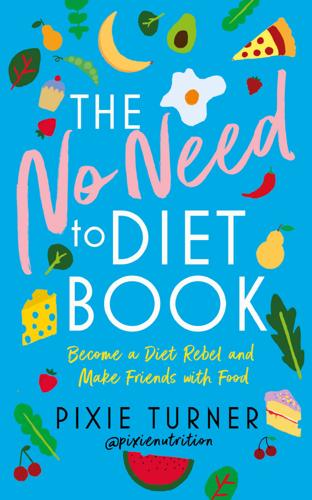
The No Need to Diet Book: Become a Diet Rebel and Make Friends With Food
by
Plantbased Pixie
Published 7 Mar 2019
But we’ve now moved beyond simply having a dichotomy of ‘processed’ and ‘unprocessed’; we also have the rise of the ‘ultra-processed’ foods. There is no current consistent definition of what amount of processing makes a food ‘ultra-processed’. At what point does a food move from the ‘processed’ to ‘ultra-processed’ category? Because there’s no consensus, it’s often used to mean ‘mass produced’, ‘factory-made’, ‘low cost’ or ‘low class’. It’s certainly not ‘posh’ food. But what about ‘wellness’ brands? Just like how with ‘junk food’ wellness brands are exempt, the same goes with ‘ultra-processed’ foods. Those energy balls technically count as ultra-processed too.
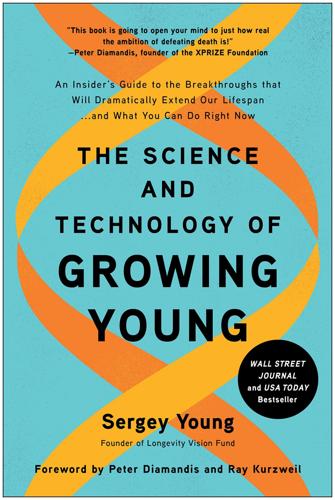
The Science and Technology of Growing Young: An Insider's Guide to the Breakthroughs That Will Dramatically Extend Our Lifespan . . . And What You Can Do Right Now
by
Sergey Young
Published 23 Aug 2021
,” Harvard Health Publishing, last modified May, 2020, https://www.health.harvard.edu/staying-healthy/can-scheduled-fasting-improve-your-health; Monique Tello, “Intermittent fasting: Surprising update,” Harvard Health Publishing, last modified February 10, 2020, https://www.health.harvard.edu/blog/intermittent-fasting-surprising-update-2018062914156. 19James Gallagher, “The diets cutting one in five lives short every year,” BBC News, last modified April 4, 2019, https://www.bbc.com/news/health-47734296; Ashkan Afshin et al., “Health effects of dietary risks in 195 countries, 1990-2017: a systematic analysis for the Global Burden of Disease Study 2017,” The Lancet 393, no. 10184 (2019), https://doi.org/10.1016/S0140-6736(19)30041-8; Heart Essentials, “Looking at the Link Between Salt and Heart Failure,” Cleveland Clinic, last modified October 26, 2017, https://health.clevelandclinic.org/looking-at-the-link-between-salt-and-heart-failure/. 20Anaïs Rico-Campà et al., “Association between consumption of ultra-processed foods and all cause mortality: SUN prospective cohort study,” BMJ 365 (2019), https://doi.org/10.1136/bmj.l1949. 21Bernard Srour et al., “Ultra-processed food intake and risk of cardiovascular disease: prospective cohort study (NutriNet-Santé),” BMJ 365 (2019), https://doi.org/10.1136/bmj.l1451. 22Jonathan Shaw, “A Diabetes Link to Meat,” Harvard Magazine, last modified January-February, 2012, https://www.harvardmagazine.com/2012/01/a-diabetes-link-to-meat. 23Nathan Donley, “The USA lags behind other agricultural nations in banning harmful pesticides,” Environmental Health 18, no. 1 (2019), https://doi.org/10.1186/s12940-019-0488-0. 24Robert A.
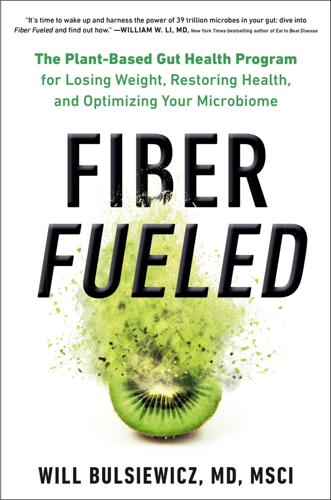
Fiber Fueled: The Plant-Based Gut Health Program for Losing Weight, Restoring Your Health, and Optimizing Your Microbiome
by
Will Bulsiewicz
Published 15 Dec 2020
Take a moment to think about that: the sheer volume of man-made chemicals we’re putting into our bodies, and the unrealistic expectation that our microbiota will be able to process and eliminate them without any damage. It’s a shock that we don’t drop dead from this stuff and a total testament to the adaptability of our microbiome, even if this is likely contributing to mass bacterial extinction. It comes as no surprise that every 10 percent increase in consumption of ultra-processed foods is associated with more than a 10 percent increased risk of developing cancer and a 14 percent risk of early death. So what happens when you hit American levels of consumption—50 or 60 percent? I don’t think that every food additive is harmful in the long term, but we don’t know and likely will never know.
…
And, of course, it’s in any products that include wheat, barley, and rye. Since most of us have never even seen raw wheat, it’s fair to acknowledge that almost all gluten-containing foods are processed foods—bread, pasta, pizza, and cereal. And that, my friends, is one of the main reasons that people may feel better when they go gluten-free. The elimination of ultra-processed foods, including refined carbs, is something that I support 100 percent. But does it make sense to categorically eliminate all gluten-containing products, or are we throwing the baby out with the bathwater? Gluten is a problem for people with celiac disease. They need to be completely gluten-free and there’s no debate.
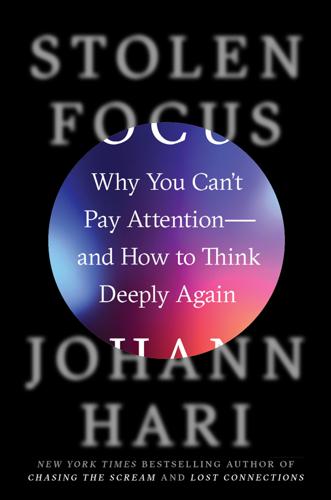
Stolen Focus: Why You Can't Pay Attention--And How to Think Deeply Again
by
Johann Hari
Published 25 Jan 2022
Then, as we became more accustomed to food that was radically different from what had gone before, the food industry began to find more and more sophisticated ways to directly target our primitive pleasure centers. They pumped our foods full of sugars in quantities that never occur in nature, and trans fats, and various unprecedented new inventions. In the U.S. and Britain, most of what we eat now falls into the category of “ultra-processed food”—which is, as Michael Pollan has pointed out, so removed from anything in nature that it’s very hard to figure out what the original ingredients even were. There’s some uncertainty about precisely how this has affected our focus, but we have some pretty strong clues. Since the 1970s there have been several scientific studies designed to figure out what happens to your attention when you change your diet.
…
See also violence trees, 212 triggers (internal), 145–46, 148–49 Trump, Donald, 111, 164, 192 24 (TV show), 74 twin studies, 232–35 Twitter algorithms and, 131 collective attention span study on, 30 false news and, 135–40 as fast and temporary, 25–26 infinite scroll and, 120 message in the medium, 83–85 reinvented, 157–58 U Ulin, David, 80 “ultra-processed foods,” 200 unions, 192, 277 universal basic income, 181–82 unplugging. See digital detox unschooling, 256–61 V Valium, 218 Verbeck, Donna, 249, 251, 252 violence ADHD symptoms and, 173–79 current trends, 183, 242, 243, 248–49 Vitruvius, 205 “voodoo dolls,” 126–27 W waking drive, 75–76 Wall Street Journal, 164–65 waning light, 75–76 waste removal, during sleep, 71–72 web browsers, 119–21 website hack comparison, 266–67 white nationalists, 136–37 Wikipedia, 31 wildfires, 281–83 Williams, James on attention, 13–14 on attention crisis, 282 on change strategies, 170 on forms of attention, 265–67 on tech design, 105, 123, 140–41 “wired,” 16–17 women’s rights, culture shifts and, 166–68 work ethic, 246–48 work hours background, 185–86 change strategy for, 270 during Covid-19, 193 four-day week, 187–90, 192, 193, 273–74 personal identity and, 192 productivity and, 97–98, 184, 186–90 “right to disconnect,” 194–95 weekends and vacation time, 190–92 work stress, 184 X Xanax, 218 Y Yang, Andrew, 181 yoga, 36–37, 178, 270 YouGov, 171–72 young adults, 10, 68 YouTube algorithms and, 131, 135–37, 138–39 profile tracking through, 126 radicalization debate, 162–63 reinvented, 159–60 Z zoos, 218–20 Zuboff, Shoshana, 127, 156, 170 Zuckerberg, Mark, 33, 123, 147, 165 A B C D E F G H I J K L M N O P Q R S T U V W X Y Z BY JOHANN HARI Stolen Focus: Why You Can’t Pay Attention—and How to Think Deeply Again Chasing the Scream: The First and Last Days of the War on Drugs Lost Connections: Uncovering the Real Causes of Depression—and the Unexpected Solutions ABOUT THE AUTHOR Johann Hari is a British writer who has authored two New York Times bestselling books, which have been translated into thirty-seven languages and praised by a broad range of people, from Oprah Winfrey to Noam Chomsky, from Elton John to Naomi Klein.
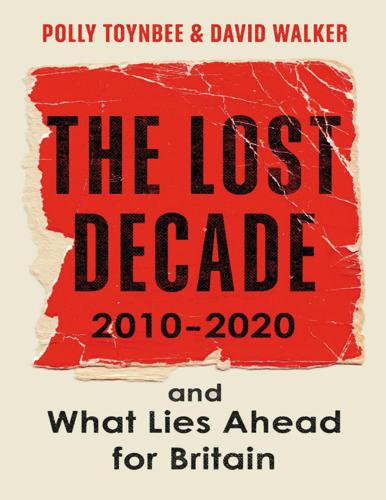
The Lost Decade: 2010–2020, and What Lies Ahead for Britain
by
Polly Toynbee
and
David Walker
Published 3 Mar 2020
The likes of Oscar-winner Olivia Colman and Luther star Idris Elba said they had been nurtured in their early days by grants and by subsidised arts organisations and venues. Altered States Excited talk about altering eating habits was much heard but turned out not to be a reliable statistical guide. Kebab shops were not going out of business. More than half of the UK’s diet still consisted of ultra-processed food, high in sugar, salt and saturated fat. Across the Channel, about a seventh of the French diet was similarly constituted. Sustainable food consumption became fashionable, and might prove to be a precursor to a major change in habits. A survey by Waitrose (taking in all supermarkets) said one in eight people in the UK were now vegetarian or vegan and one in five flexitarian – and most of them had adopted the habit recently.